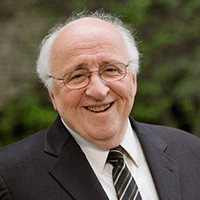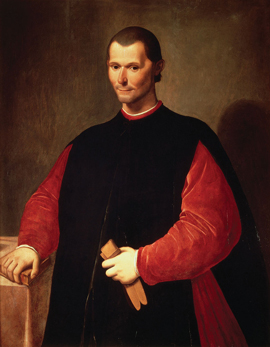Editor’s note: This is the first in an occasional series of reflections on leadership by Richard J. Mouw, professor of faith and public life at Fuller Theological Seminary, where he served as president from 1993 to 2013.
About 10 years after I became the president of Fuller Seminary, I received a letter from a college student asking me for career advice. His goal in life, he said, was to be the kind of academic president that I was, and he wondered how he should prepare for that role.
I wrote back, telling him that if he really wanted to end up where I was, then he should not think about being the president of anything. Instead, I advised, he should decide what area of scholarship and teaching he was passionate about and pursue it diligently. And if anyone ever tried to tempt him into administration, I added, then he should resist.
I was not trying to be clever. I honestly never hoped or planned to become an academic administrator. Nor, I have to admit, did anyone else seem to have such hopes or plans for me, at least during the first 20 years of my academic career.
The evening after I was inaugurated as president of Fuller in 1993, the school put on a “roast” for me. Among the “roasters” was Anthony Diekema, the president of Calvin College, where I had served on the faculty for 17 years. When folks at Calvin heard that I had been selected as Fuller’s president, Diekema said, they decided that either Fuller knew something about me that they at Calvin did not know, or the Calvin folks knew something about me that Fuller did not know. There was an element of honest candor in Diekema’s humor.
I have known many people in positions of administrative leadership who always wanted to be the leader of an organization or institution, and they have met their goal by doing a fine job at leading. But that has not been my story.
Although I never had a desire to be an administrative leader (note the adjective), I always believed that my work as a teacher-scholar was essentially a matter of leadership. I went into higher education with a deep commitment to do what I could to help provide much-needed intellectual direction to the Christian community. And when I finally did decide to become an administrator, it was because I saw that new role as a way to expand upon that same leadership task.
My initial entry into administration happened in 1988, three years after I joined the Fuller Seminary faculty. Then-President David Hubbard was looking for a new provost, and he asked me whether I would be interested in the job. My answer was a firm no. But at his request, I agreed to help him do some scouting for possible candidates. Together we pursued some options, and each time we decided we had not found the right person, he asked me again whether I would consider the appointment. And each time, I replied in the negative.
Finally, though, we had a plausible candidate, and David arranged a meeting to offer the person the job. But before that happened, he asked me one more time, insisting that he still preferred to have me as provost. Offering to postpone the meeting with the candidate, he asked me to at least prayerfully consider it for a few days. I agreed to do so.
With his permission, I called a couple of friends for counsel. The clincher was a conversation with Barbara Wheeler, who was then the president of Auburn Seminary in New York. She proposed two tests for me.
One, she said, was easy -- if I passed it, I should immediately take the provost job.
“When you were a kid in New Jersey, Richard,” she began, “and you would go to Yankee Stadium to watch the Yankees play, and you would see Joe DiMaggio in the outfield, Yogi Berra behind the plate, Phil Rizzuto at shortstop and Eddie Lopat on the mound -- did you look down on all of that and say to yourself, ‘When I grow up, I want to be an umpire!’? If so, you definitely should be the provost at Fuller!”
I failed that test. But her next test was even harder.
She observed that I had always had strong convictions about Christian higher education, the church, the quest for justice and so on.
“Are you willing now to put those ideas into practice by giving administrative leadership to a highly influential evangelical institution?” she asked.
I decided that, yes, it was time to take on the challenges of practical philosophy and practical theology. With her help, I realized that I would not be taking on something new. I would not be “going into leadership.”
Instead, I would only be broadening my existing commitment to leadership. I would be building upon the leadership I had already been practicing for years as a scholar and teacher. To me, administrative leadership was no longer “just administration” but an important and vital way to implement strategies for kingdom service.


















